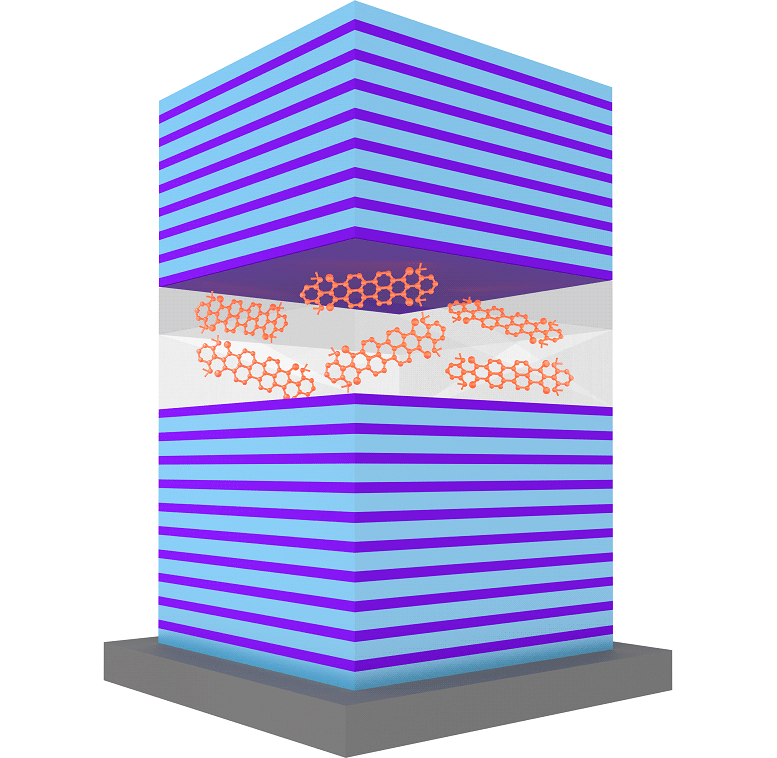
Super fast quantum battery scheme. Credit: CNR – Politecnico di Milano
Researchers from the Institute of Photonics and Nanotechnologies of the Cnr and the Politecnico di Milano have built a battery which, following the laws of quantum physics, has a recharge time that is inversely related to the amount of stored energy.
Quantum batteries are a new class of energy storage devices that operate according to the principles of quantum physics, the science that studies the infinitely small where the laws of classical physics do not always apply. Tersilla Virgili of the Institute of Photonics and Nanotechnologies of the National Research Council (Cnr-Ifn) and Giulio Cerullo of the Physics Department of the Politecnico di Milano have shown that it is possible to manufacture a type of quantum battery where the charging power increases faster by increasing the battery capacity. The work, carried out together with other international research groups, was published in Science Advances.
“Quantum batteries have a counter-intuitive property in which the recharge time is inversely related to the battery capacity, that is the amount of stored electrical charge,” explains Virgili. “This leads to the intriguing idea that the charging power of quantum batteries is super-extensive, meaning that it increases faster with battery size.”
The fabricated device is a microcavity in which the active material consists of organic molecules dispersed in an inert matrix. “Each molecule represents a unit that can exist in a quantum superposition state of two energy levels (fundamental and excited), similar to the way a qubit, the basic unit of quantum information, can be both 0 and 1 simultaneously in quantum computers,” Cerullo specifies.
By constructing the quantum battery in a way that units can exist in superposition, the total system can behave collectively. This behavior, known as quantum coherence, allows the units to act cooperatively, giving rise to a hyper-fast charge that depends on the number of molecule-units.
“In the future this type of device can be applied in various scientific and technological fields such as wireless chargers, solar cells, and cameras,” concludes Virgili.
Reference: “Superabsorption in an organic microcavity: Toward a quantum battery” by James Q. Quach, Kirsty E. McGhee, Lucia Ganzer, Dominic M. Rouse, Brendon W. Lovett, Erik M. Gauger, Jonathan Keeling, Giulio Cerullo, David G. Lidzey and Tersilla Virgili, 14 January 2022, Science Advances.DOI: 10.1126/sciadv.abk3160
Source: SciTechDaily
At the beginning, I was still puzzled. Since I read your article, I have been very impressed. It has provided a lot of innovative ideas for my thesis related to gate.io. Thank u. But I still have some doubts, can you help me? Thanks.